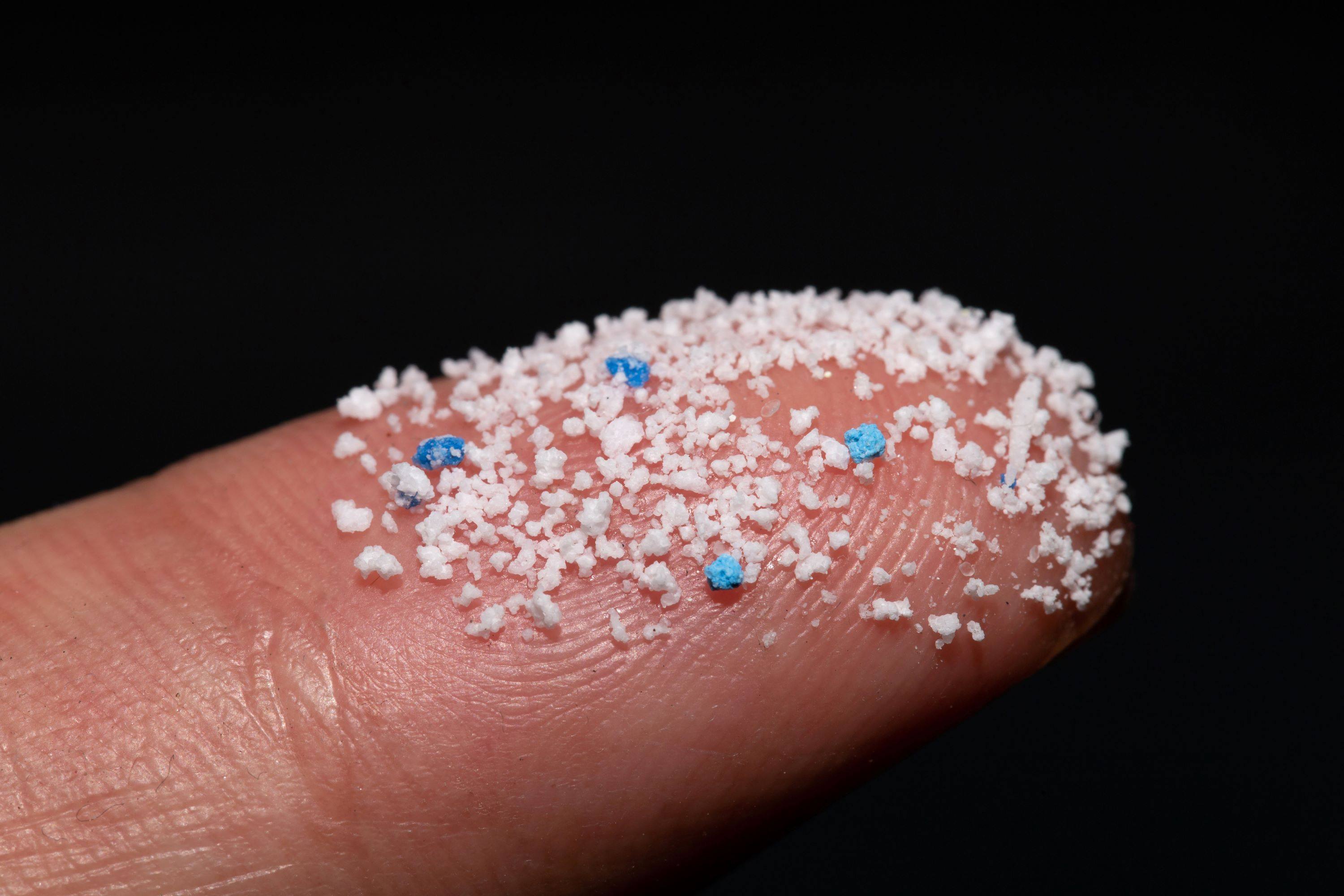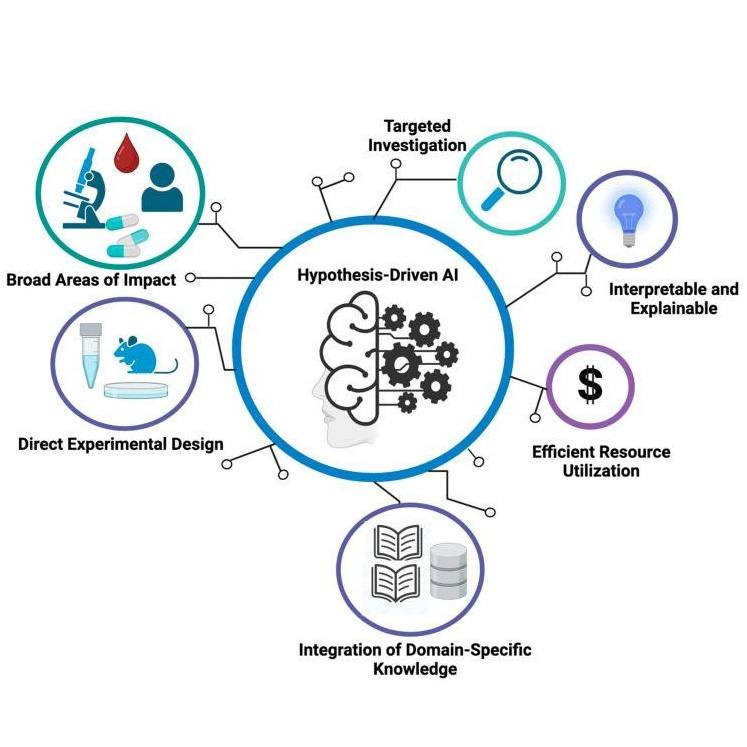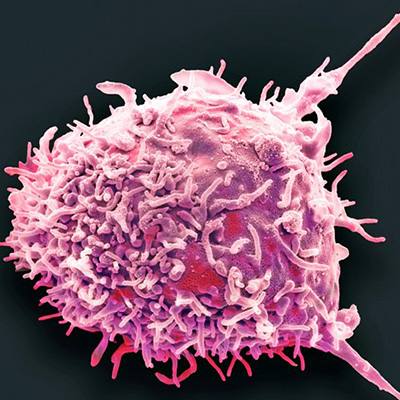-
Individualized Medicine
Preparing the workforce of the future: students work side-by-side with Mayo researchers and physicians

Virginia Shapiro, Ph.D.
This past summer, Monika Kizerwetter arrived on Mayo Clinic’s campus in Rochester, Minnesota, and Hsuan-Yu (Taylor) Chen came to Mayo Clinic’s Florida campus – each ready to work alongside leading medical researchers.
But their experience extended far beyond the laboratory. They each saw firsthand how teams of researchers and physicians collaborate to fuel discoveries that can improve patient care.
Kizerwetter and Chen were among 10 Illinois students who came to Mayo Clinic through the Mayo Clinic & Illinois Alliance for Technology-Based Healthcare. Each student was matched with research mentors whose research is supported in part by Mayo Clinic Center for Individualized Medicine.
They joined students from across the country as participants in the Summer Undergraduate Research Fellowship (SURF) Program within the Mayo Clinic Graduate School of Biomedical Sciences.
We’re helping to educate the workforce of the future by bringing these amazing students to investigate how genomics is implicated in health and disease.”
Carolyn Roher Vitek, Ed. D.

“These students had the opportunity to work with researchers across a broad spectrum of specialties, to work on their own research project or as part of an ongoing research investigation in order to advance discovery. We’re helping to educate the workforce of the future by bringing these amazing students to investigate how genomics is implicated in health and disease,” says Carolyn Rohrer Vitek, Ed. D., operations manager, Mayo Clinic Center for Individualized Medicine Education Program.
Maximizing the benefit of immunotherapies to treat cancer
Kizerwetter, a senior majoring in bioengineering and minoring in chemistry, chose to come to Mayo Clinic to further her research in immunology and see how this work translates into medical care.
“I knew there was no other environment quite like Mayo Clinic, a place where you can see cutting edge research and state-of-the-art medical care coming together as one," says Kizerwetter. "I had the opportunity to meet and discuss research with some of the top scientists and clinicians in the world. You can see how the research you do can impact the lives of patients.”
Working in the laboratory of Virginia Shapiro, Ph.D., Kizerwetter examined ways to maximize the effectiveness of immunotherapies to treat cancer.
“As tumors grow, they ensure that the environment around them remains very immunosuppressive, interfering with the ability of key components of immunity, like T cells, to activate and respond to disease,” she explains. “We explored ways to make the tumor environment more hospitable to immune cells, with the goal of eventually developing a technique that could be used in conjunction with other immunotherapies, such as CAR T cells, to improve patient outcomes. Ideally, these therapies would be tailored to a patient’s unique cancer type as well, further increasing therapeutic efficacy.”
She also analyzed the benefits and potential side effects of therapies known as HDAC3 inhibitors used to treat cancer and Huntington’s disease.
“I knew there was no other environment quite like Mayo Clinic, a place where you can see cutting edge research and state-of-the-art medical care coming together as one. I had the opportunity to meet and discuss research with some of the top scientists and clinicians in the world. You can see how the research you do can impact the lives of patients.”
Monika Kizerwetter
For Kizerwetter, the opportunity to refine her laboratory skills and collaborate with researchers on new approaches will be invaluable as she moves forward in her research career.
“While in Dr. Shapiro’s lab, I was always encouraged to explore new aspects of my projects and felt supported by those around me. My time at Mayo Clinic cemented my decision to pursue a doctorate and a career in biomedical research.”
Improving care for Parkinson’s disease and other neurodegenerative disorders

Chen is also studying bioengineering as a sophomore at Illinois. He was drawn to Mayo Clinic to get a closer look at how research discoveries are translated into patient care.
“As bioengineering students, we spend a lot of time thinking about how research and engineering can help solve real world problems seen in medicine, such as drug delivery or imaging. My summer research experience at Mayo Clinic broadened my perspective and gave me hands on experience with research that is laying the foundation for the development of new therapies for Parkinson’s disease and other neurodegenerative disorders,” he says.
Chen worked with Wolfdieter Springer, Ph.D. and his laboratory team, focusing on the mechanisms driving mitophagy, a process that guides the turnover of mitochondria within cells to keep them healthy.
“While this process has been studied mostly in cellular models in the past, Dr. Springer and his colleagues are using brain tissue from deceased patients who had neurodegenerative diseases to study how disruptions in the mitophagy process may be linked to their disorder,” he explains. “This work will lay the groundwork for future research into developing therapies that can correct or repair dysfunctions in these underlying processes.”
“Not only did I learn about science and lab techniques, I was also able to learn how scientists critically analyze a problem, ask questions and facilitate constructive discussions. On the medical side, I got to observe how the best hospital in the world provides care and service to its patients.”
Hsuan-Yu (Taylor) Chen.
Planning to pursue a career as a physician-scientist, Chen was also inspired by the collaboration he saw among research teams.
“Not only did I learn about science and lab techniques, I was also able to learn how scientists critically analyze a problem, ask questions and facilitate constructive discussions. On the medical side, I got to observe how the best hospital in the world provides care and service to its patients,” says Chen.
Benefactors help educate the next generation
Support from these benefactors has helped many talented students explore individualized medicine research:
- Brandt Young Scholars Fund
- Brian P. and Doris G. Monieson Fund for Mayo Clinic Summer Undergraduate Research Fellowships, Center for Individualized Medicine.
"Thanks to our generous benefactors, we are able to bring gifted students to Mayo Clinic and introduce and engage them in clinical, precision medicine research. It’s so exciting to watch these students develop and share their research findings … they amaze me with how they continue to advance the science,” says Rohrer Vitek.
Stay informed
Read more stories about advances in individualized medicine.
Register to get weekly updates from the Mayo Clinic Center for Individualized Medicine blog.
Join the conversation
For more information on the Mayo Clinic Center for Individualized Medicine, visit Facebook, LinkedIn or Twitter at @MayoClinicCIM
Related Articles







